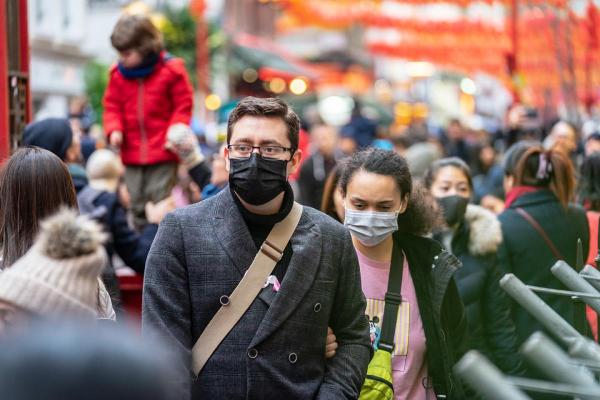As U.S. libraries react to the coronavirus pandemic this week — and prepare for an increasing number of cases, as experts predict — many library workers are faced with a difficult question: when should they cancel in-person programs at the library?
Because the severity of the outbreak varies widely from region to region, there is no easy answer, says the American Library Association.
“Libraries are local institutions, and decisions about how and if to continue to hold programs should be made using the best and most recent information available from local public health agencies,” ALA said in a statement Thursday. “Libraries are public places, and decisionmakers need to weigh the wellbeing of staff, patrons and the community when making changes to library programs or policies.”

Canceling programs
Library workers, using their local public health departments as weathervanes, are deciding when to pull the plug on in-person gatherings.
New York Public Library, Brooklyn Public Library and Queens Public Library leaders decided late Wednesday to cancel programs for the month of March.
“Things are escalating quickly,” said Jeff Lambert, assistant director of digital inclusion and workforce readiness at Queens Public Library and chair of ALA’s Public and Cultural Programs Advisory Committee. “We have changed the desktop background on public computers to post best practices about handwashing and posted official communications coming in from city agencies or the Centers for Disease Control. We want to be reactive in a way that’s science-informed, and since we are not the experts on pandemics, we are pulling in the experts wherever we can.”
The three New York City library systems have also removed all toys and manipulatives from children’s spaces.
In eastern Washington, the Spokane Public Library canceled “all programs, events, meeting room bookings and outreach services through March 31.”
“At this time, all physical library locations continue to operate with standard hours. We have increased our cleaning and disinfecting regimen at all locations and are monitoring both staff and customers for symptoms. Our staff are practicing social distancing,” the library said in a statement. Library staff reminded users that it has many digital services available to you for free, such as eBooks, streaming TV, audiobooks and movies.
In central Florida, the Tavares Public Library postponed some library programs and outreach events. Library Director Rebecca Campbell said staff are taking myriad other precautions, including sanitizing headphones, tablets and game controllers after every use; sanitizing door handles and light switches often; removing all children’s toys and puppets; and encouraging social distancing by leaving only one chair at every table and turning off every other public computer and posting “not available” signage to increase the distance between computer users.
Watching and waiting
In many regions that have not yet seen local cases of COVID-19, many libraries remained open while awaiting instructions from local leaders and public health officials.
As of Friday morning, Elkins-Randolph County Public Library in northeast West Virginia was on a “hurry up and wait status” but had not canceled programs or services, said Library Director Stephanie Murphy.
“While there continues to be no confirmed cases in West Virginia, our library is prepared to be an information hub for the community,” Murphy said. This includes installing shortcuts on all computers to real-time data about COVID-19 in their state and offering printed CDC materials for patrons to take. “Our goal is to remain open as long as possible, serving the homeless and those who have limited access to information.”
But things could change quickly, Murphy noted. “Once West Virginia has a confirmed case — and it will — we will cancel all children and senior programs and activities,” she said. “At that time, we will evaluate for proximity of cases and plan for next step. If county schools close, then we will close our library, in the interest of protecting our staff which contains three persons over 60 years of age.”
Other libraries remained open for all business Friday morning but were limiting the number of people allowed into the building. This was the case at Shelby Township (Mich.) Library, which had taken direction from the township supervisor and governor to allow a maximum of 100 people into the building. Library staff was accomplishing this by tracking their door-count software and walking the library for estimated headcounts, said librarian Elizabeth Girbach Campion.
Library closures
Some libraries are closing altogether — including Darien (Conn.) Library, which closed “until further notice” on March 11, and the Library of Congress in Washington, D.C., which closed to the public until April 1.
As of late Thursday, public library workers were sharing news about closures at their libraries and others on a Google Form.
College and university libraries also faced the question of when to close, as many institutions called for early spring breaks or moved courses online for the remainder of the spring semester. In a letter published on ACRL Oregon’s website, the association’s president, Candise Branum, discussed the issue of library staff safety and the challenge of remaining open when other parts of the university are closed.
“Why is it so hard to close a library?” Branum wrote. “Yes, I absolutely signed on to provide library services and to be a leader in difficult times. I am still here and committed to that. But I also pause to remind myself that Librarianship is a primarily female-identified profession, and that as academic librarians, we are seen as both educators and caretakers, and in the time of a crisis, martyrs. I question the extent to which we are expected to put our bodies on the line during this public health crisis.”
Working together
Knowledge sharing and professional support remain strong even as the future of the virus is uncharted. “We are committed to supporting its members and all librarians and library workers during these uncertain times,” ALA said Thursday.
The association is continually updating this resource page for the library community about pandemic prevention, including guidance on disinfecting workplaces and what individual staff and patrons can do to minimize the risk of spread.



